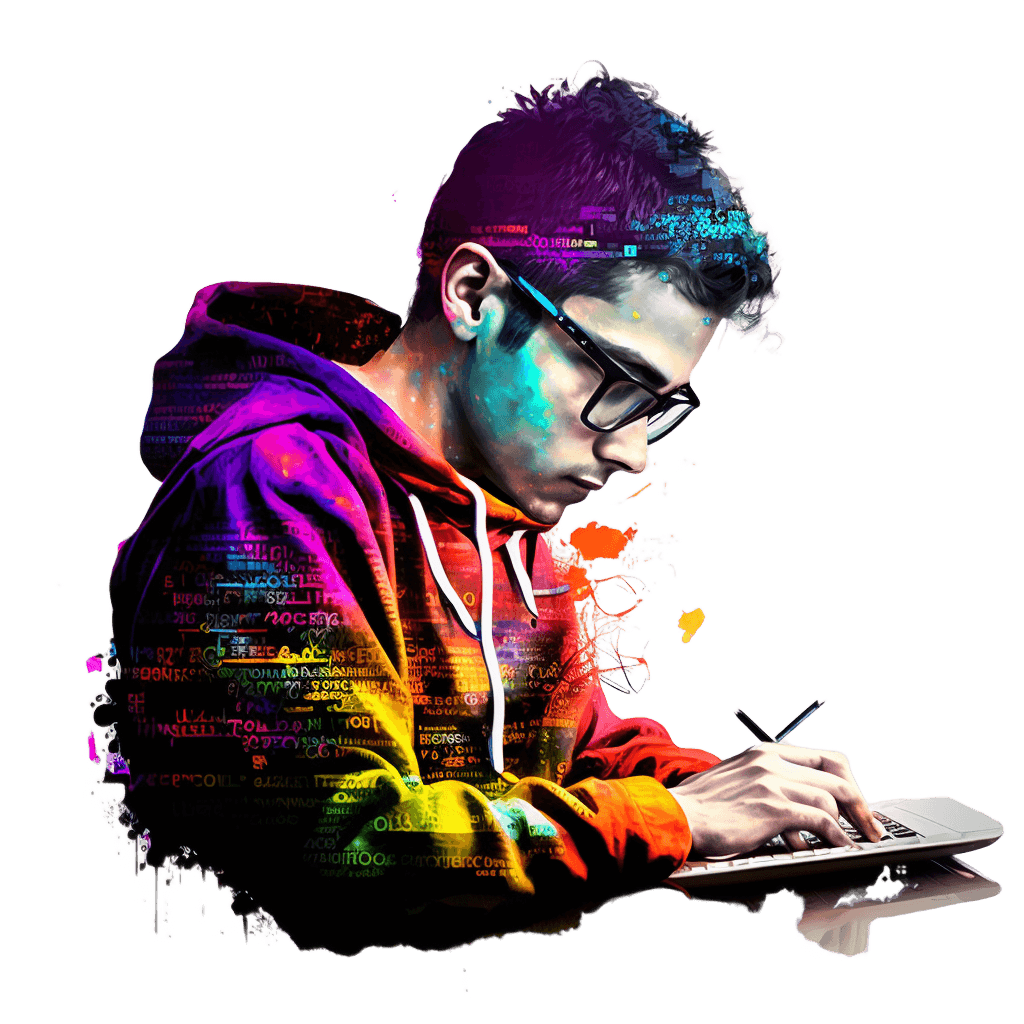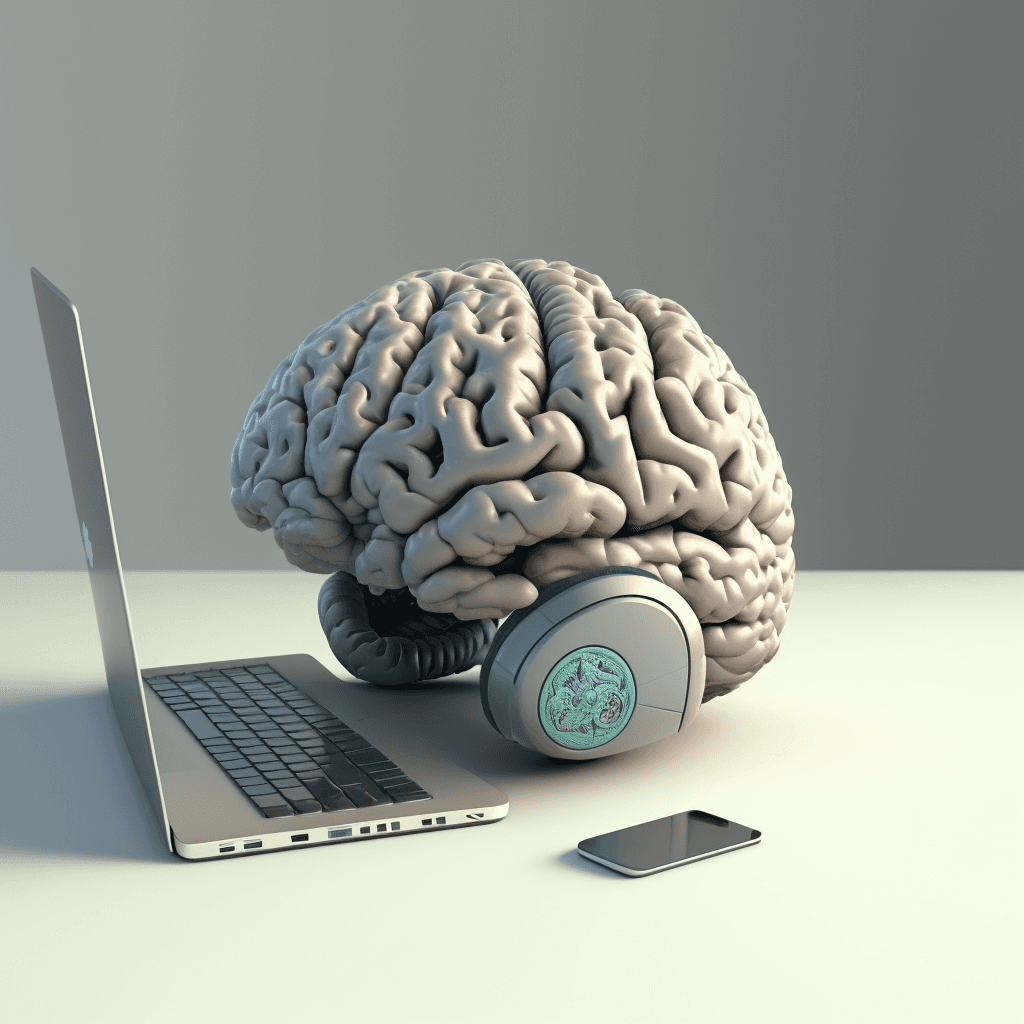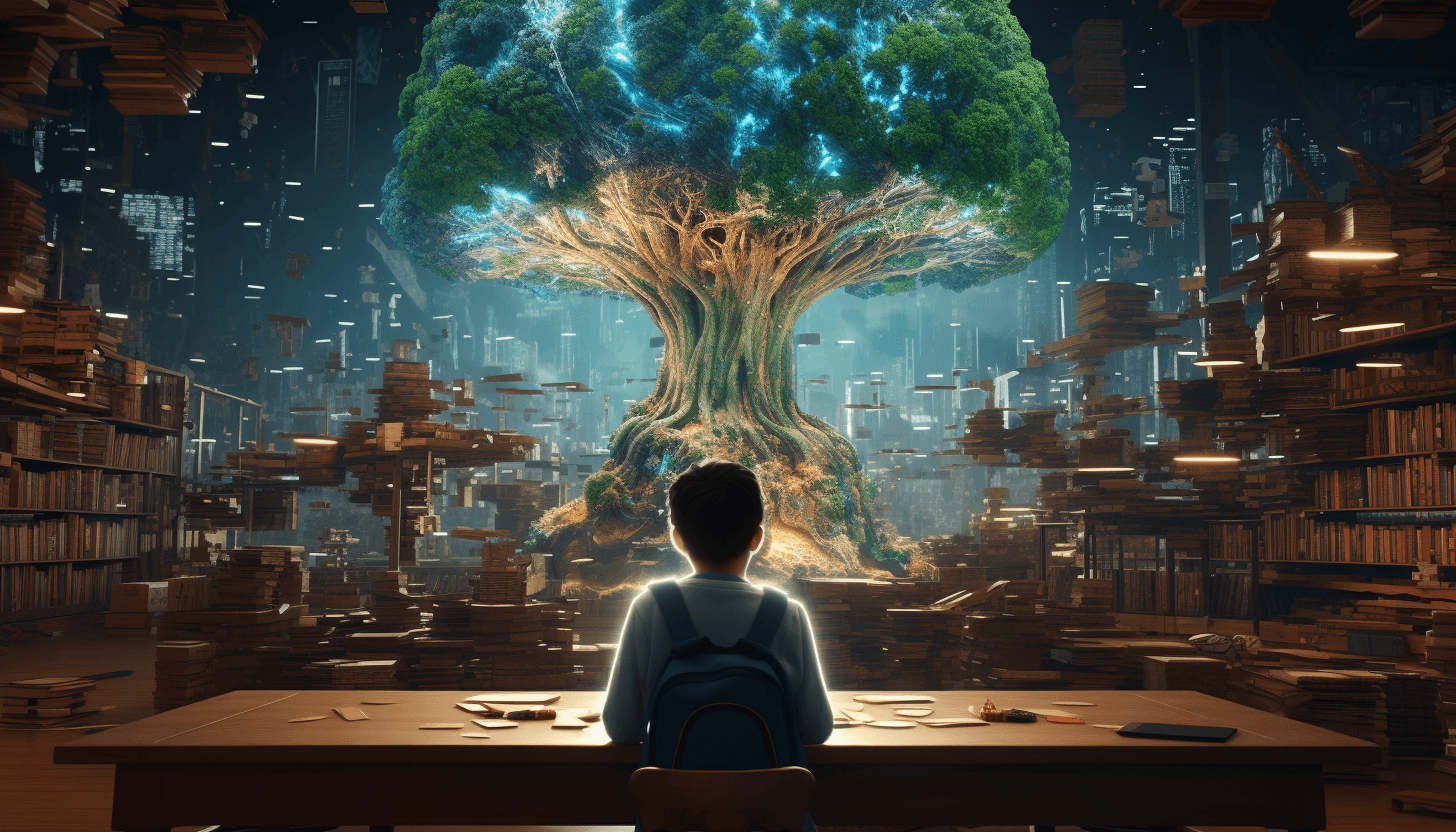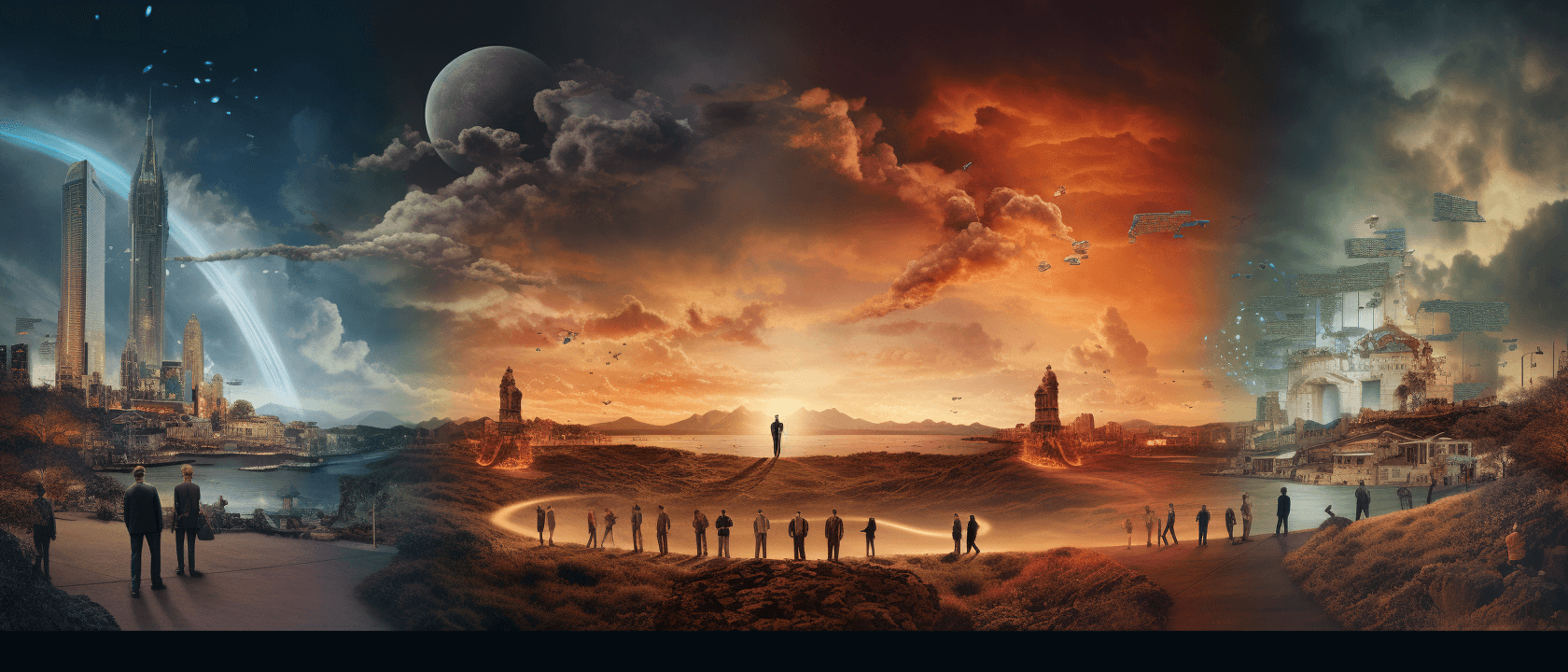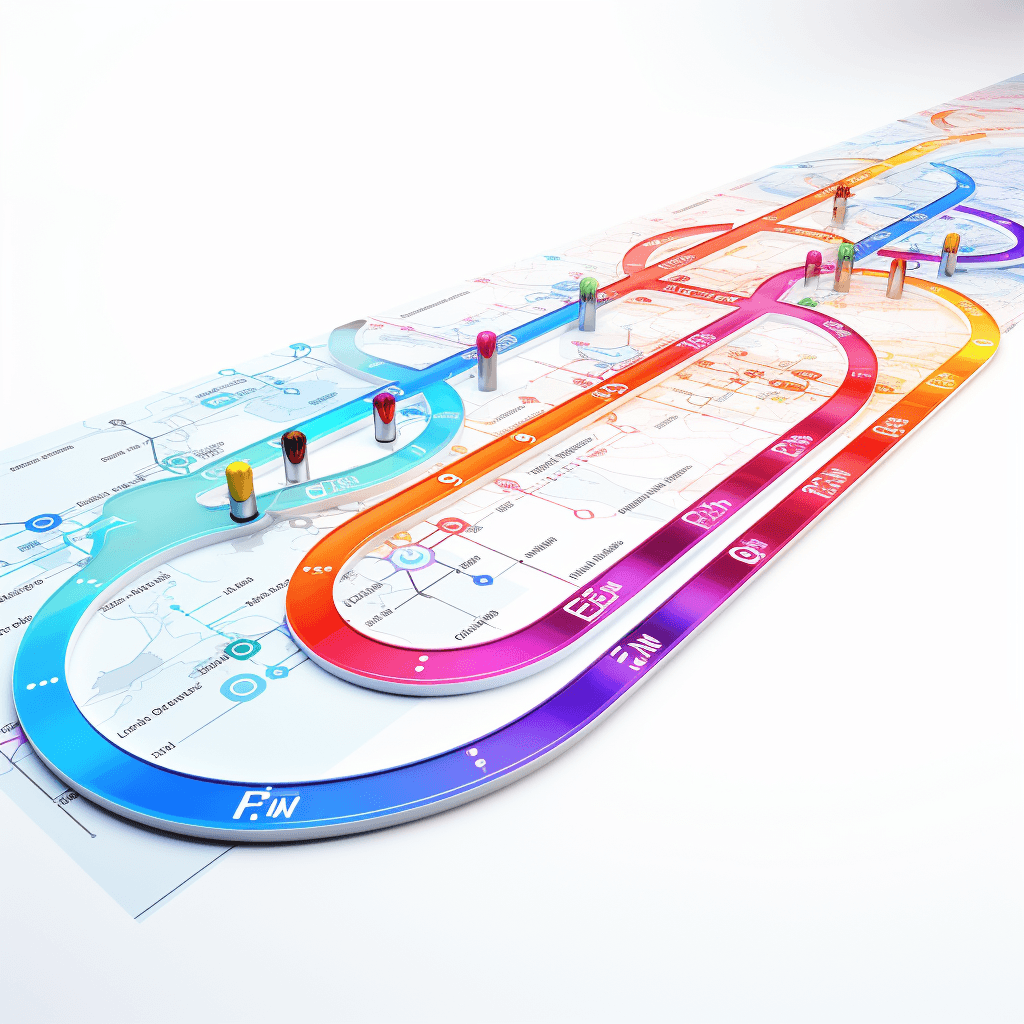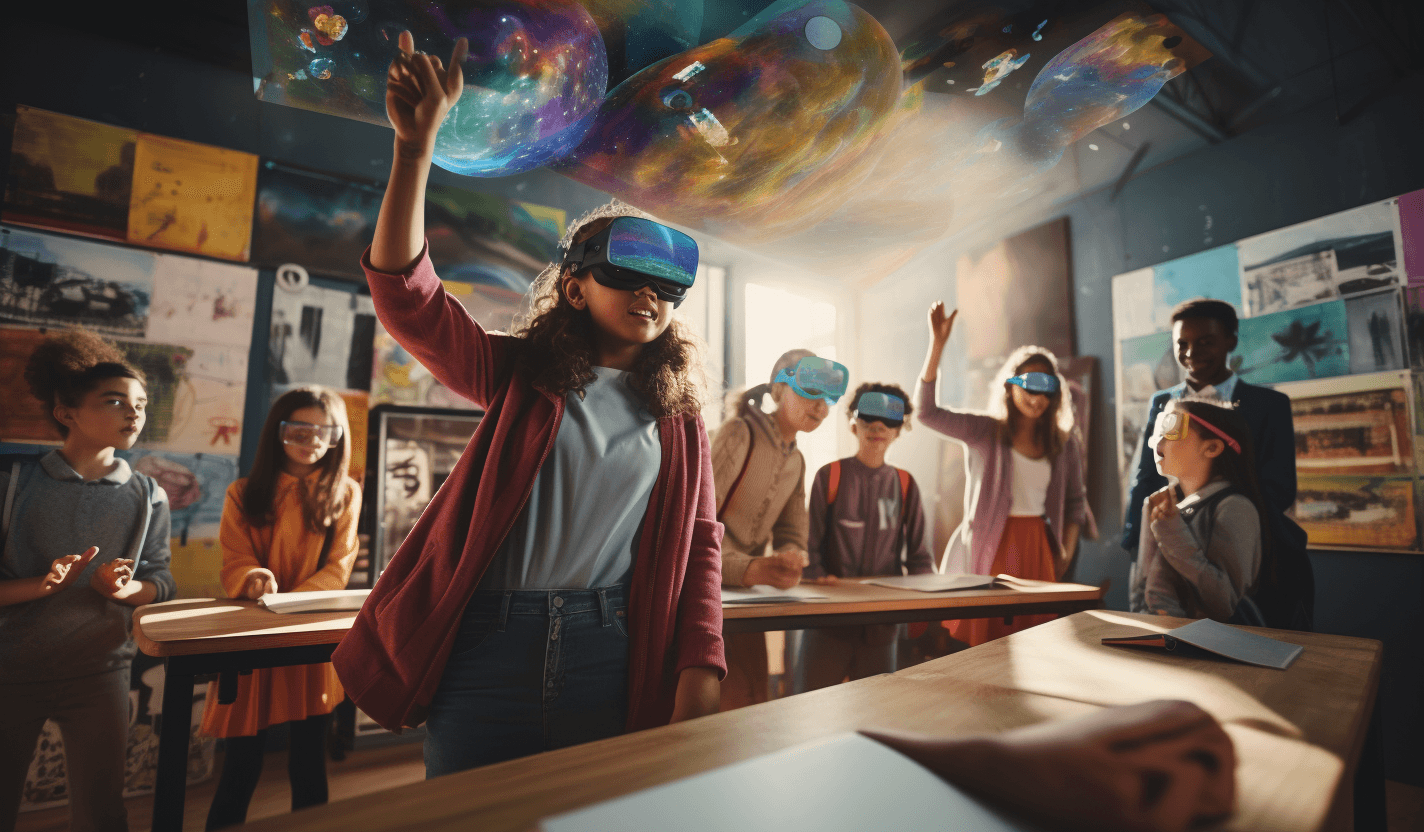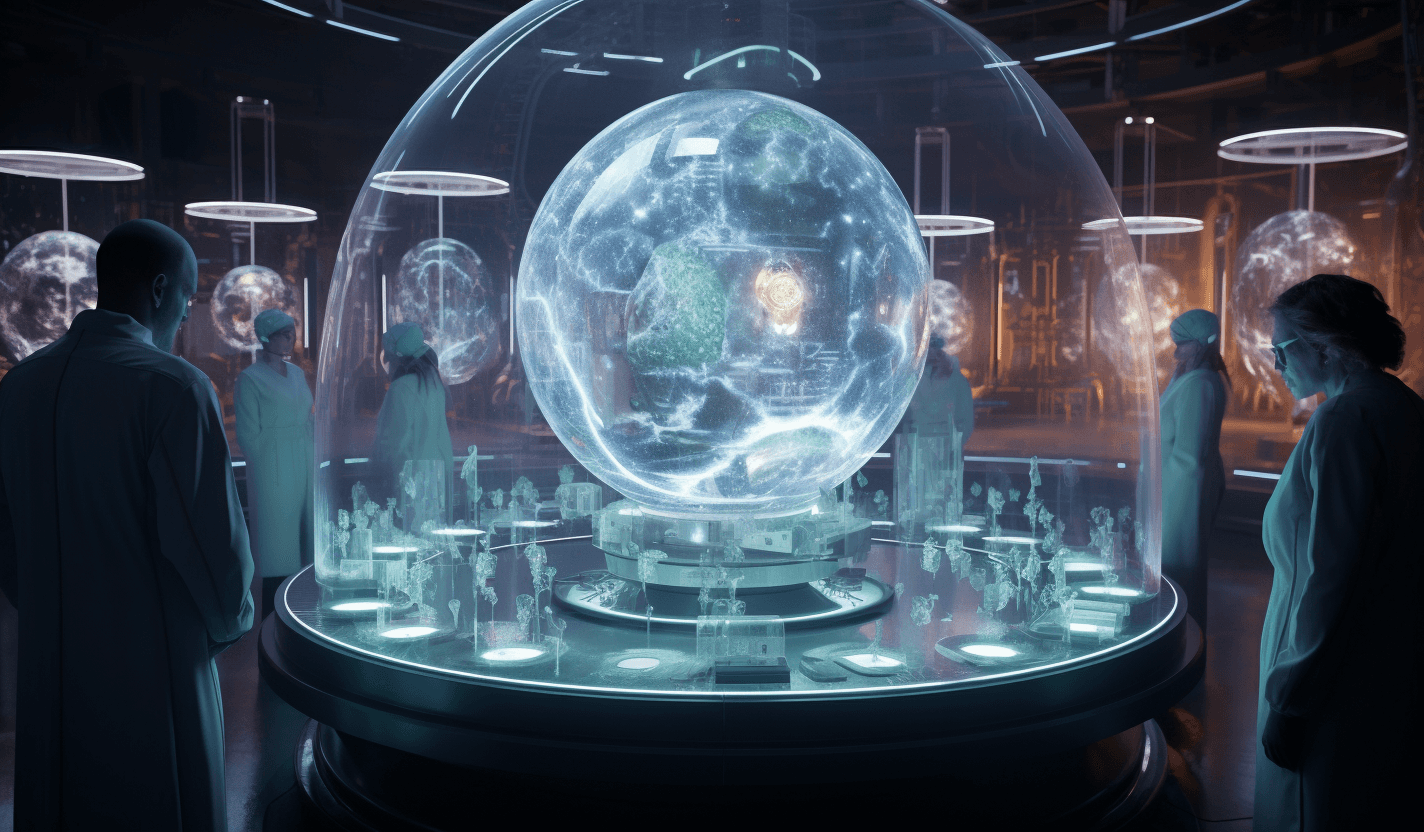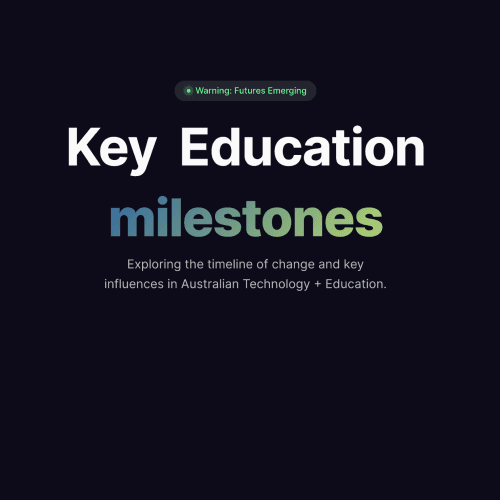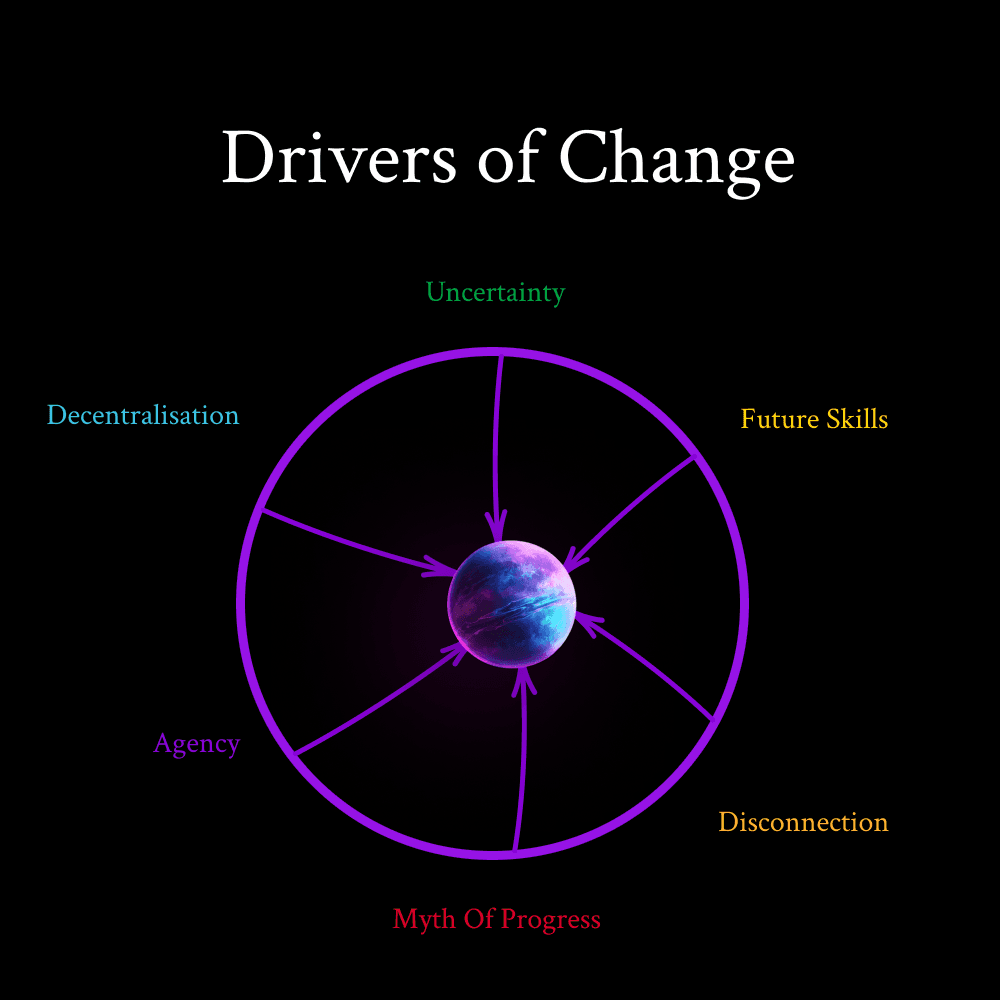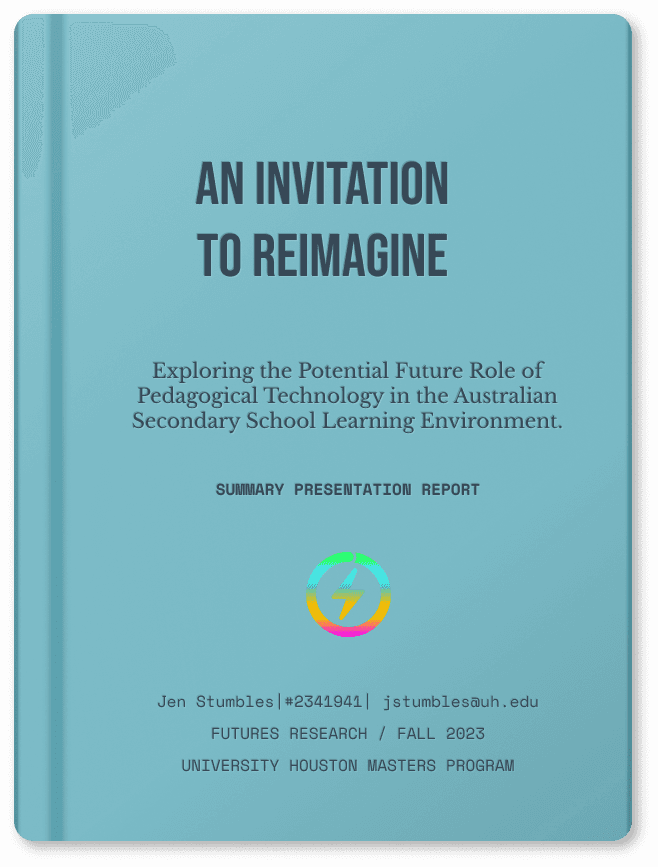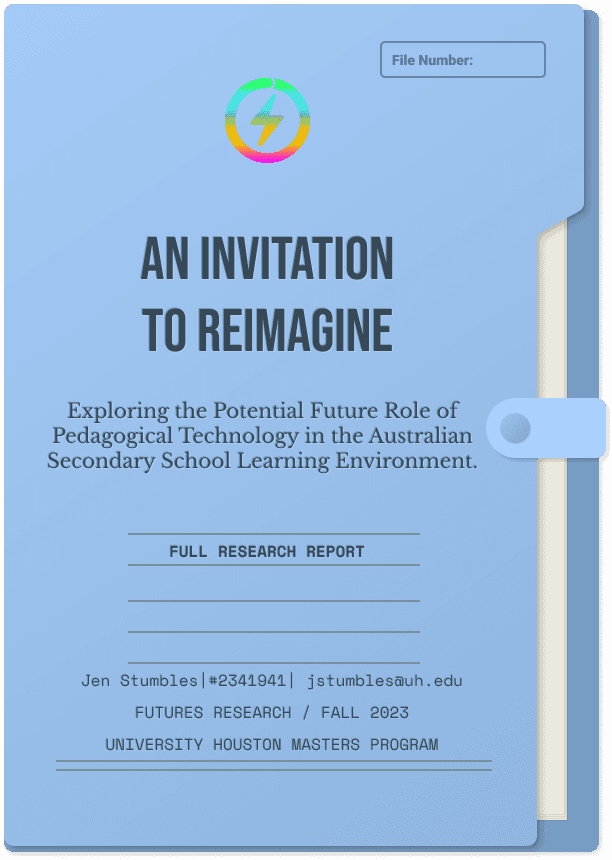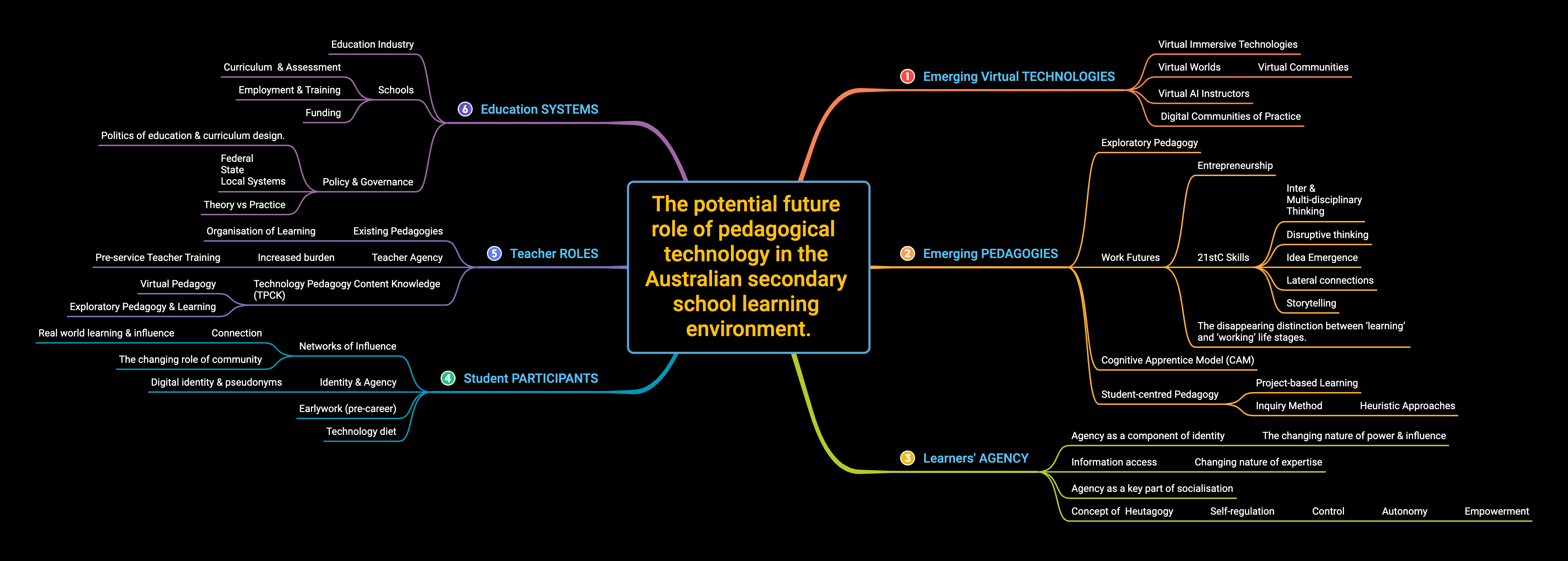
Current Assessment
Secondary school students are preparing for a work future within a post-industrialised context where their future employment will be radically different from previous generations (and most likely, radically disconnected) from the school system within which they are being prepared.
How will future technology experiences transform pedagogies?
What inherently human challenges does this technology surface and how might we meet them?
Where is the key tension in the alignment of scaleable pedagogical frameworks with non-linear outcomes?
How might an increasing future reliance on technology, shape our understanding of expertise, learning and shared value in the future?
We might consider transformation beyond the current system.
We can start reimagining this challenge by accepting education as the complex adaptive system that it is.
We might move beyond legacy worldviews
Attempting to reimagine education within the context of legacy worldviews, binds us to the very structural definitions which we seek to break free of. Edtech’s “progress or success” to date, rests squarely on its ability to provide solutions to current urgent challenges within the existing frame (a need for technology integration, balanced with increasing administration, resource shortages and remote requirements). A frame in which few other alternatives are being offered.
Edtech has largely filled a vacuum where few alternatives exist.
Edtech’s “progress or success” to date, rests squarely on its ability to provide solutions to current urgent challenges within the existing frame (a need for technology integration, balanced with increasing administration, resource shortages and remote requirements). A frame in which few other alternatives are being offered.
We might reimagine context
Our existing framing of education’s challenges as originating from historical and localised worldviews:
→ knowledge as singular & static
→ learning as linear
→ technology as tool
→ curriculum as pathway
→ assessment as progress
→ productivity as success
An Invitation to Reimagine
Technology and global change is outpacing our system.
Technology, future work, culture and life is changing exponentially faster than the pace of education reform. On every front technology is and will continue, to disrupt the status quo - not just within a learning or work space, but within modes of connection, communities of practice, pathways to agency and identity, and learning as part of the transformative social connective process.
The future is coming whether we're ready or not
Just as children cannot be controlled through authority alone, or forced to learn without personal enrolment . . nor can we ignore the disruptive change emerging elsewhere. The complex adaptive system that is education, in the broadest sense (including informal + formal, school + non-school), will continue to change and respond to the external global environment, whether schools innovate or not.
We have the opportunity now, to reframe how we see the present
As we see in the younger generation already playing at the edges of these futures; non-linear interactions are building scale and will generate their own self-organizing patterns, eventually re-organizing and/ or initiating system change in some form.
We might reimagine context
It is only by embracing the uncertainty that exists between our ideas about historical order and future chaos, that we can hope to reshape the system with both the stability + flexibility that our potential futures demand.
What if . . we became the kind of system we're trying to imagine?
What if we found the unconventional experts, the committed outliers.
What if we used future-focused structures and modes of operation that reflect the future possibility you seek to create - the focus here is global, self-driven, decentralised participatory network structures and knowledge nodes, that invite a radical rethink of education as a system?
What if . . we built our own Knowledge Commons & Community of Practice?
What if we hired industry experts to identify, gather and cultivate deep community connection and start to build an open Knowledge Common as the foundation step?
We know progress moves at the speed of trust; so what if we got serious about developing real networked relationships with people who make us uncomfortable and intentionally moved ourselves beyond our own ways of knowing?
What if . . we looked to others who have worked with wicked problems, to develop a series of hypothesis, scenarios and action plans to experiment on a small scale . . now?
Each group might develop a series of small scale considered experiments that test the edges of their hypothesis.
Their experimentation will focus around a small selection of schools, teachers and methodology. They will need funding - redirect govt. funding but also seek private contributions to bolster this think tank with both entrepreneurial input as well as financial support.
What if . . we took a
meta-frame?
How might the dominant discourse driven by Edtech and our own worldviews, bias and epistemology of technology be shaping our imaginations? How might we move beyond that?
What if we were prepared to change ourselves as much as the system?
Let's imagine that we set up an anticipatory futures community . . .
After reviewing all the current actors, their networks and participatory communities involved in the imagining, development and dissemination of alternative images of the future - we'd select the three most impactful projects and scale these up across every school - public and private.
Let's imagine . . that creating a thriving community of creative disruptors is the way forward to help us reimagine education and technology's role within it . . .
We'd be intentional that these experimental projects not be destructive to the current system, but instead run in parallel. Just as large corporations may ‘incubate’ new ideas within intrapreneurial startup modules inside the larger organization - so too, can new models be incubated within the current system.
And remember, just like our young learners . . . learning is voluntary for all of us. So how might we imagine this community of practice in a way that invites enrolment . . rather than demands it?
We need Technology as part of this working group, they are not the solution but the real question is . . how might they be part of ours?
Big Tech should be deeply engaged with this new process. In order to mitigate lone actors (or industry) fragmenting the existing system further, we need to ensure that they are part of the solution from the beginning.
But they . . should not drive the conversation.
And we can start with the people who have already devoted their lives to this cause . . .
How might enrolling teachers as a matter of urgency, help us to build momentum around their imaginings . . right there from the front line?
They don't just need curriculums and digital devices, they need communities of practice, and invitations to participate, they need support and the freedom (funding) to experiment and participate and anticipate. We can start this now.
